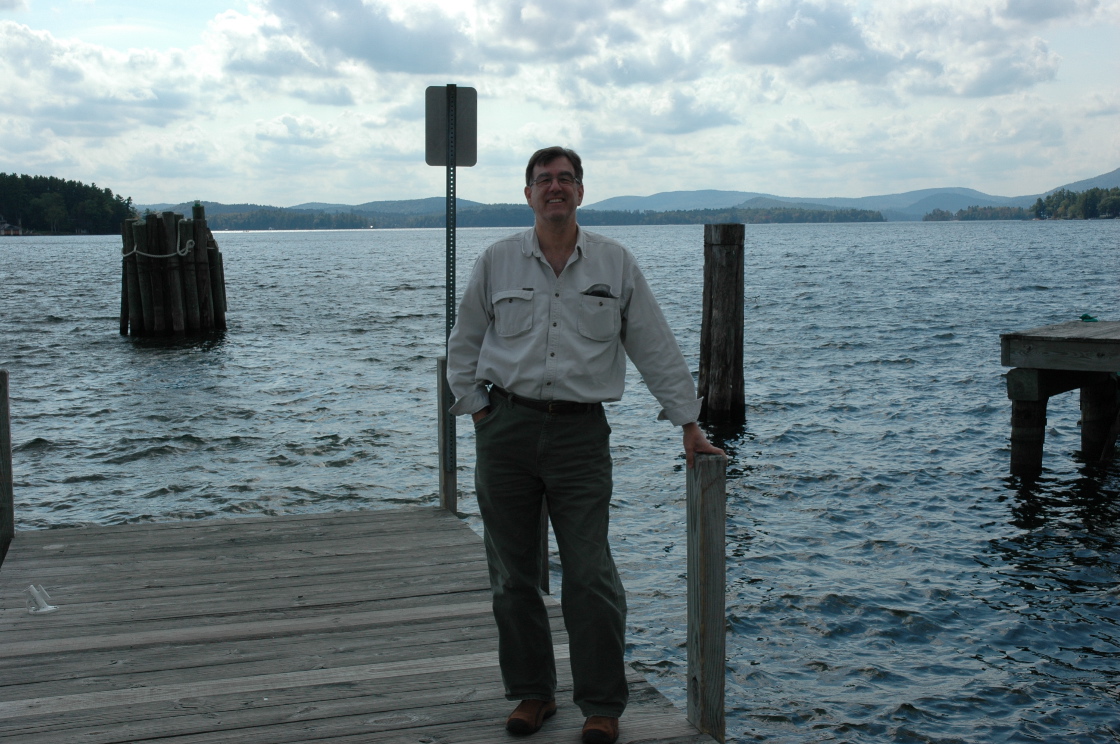Part of my job here is to set up the vehicles and drivers for motorcades. Last week we had a delegation of Senators, Congressmen and staff come to Islamabad for a visit and they required transportation to and from their various appointments. They were invited over to BB's place for breakfast and, because I ride in the control vehicle, I had to tag along. Among her many homes, here and abroad, BB keeps a surprisingly modest house in a typical Islamabad neighborhood. For security, the entire street is blocked off and only pre-cleared vehicles are allowed to enter. Our motorcade was expected and we drove up the street and pulled all our vehicles into her private compound which was actually somewhat smaller than my own private compound. Had she but asked, I'd have happily loaned her my house for her breakfast meeting.
While our dignitaries met with her, I waited outside the house in the rain with the drivers and security people. Quite thoughtfully, BB sent out tea and sandwiches to us. When the meeting ended and everyone was leaving, I wound up standing next to her in the driveway. I thanked her for the tea and sandwiches, opened car doors for assorted congress people and staff and we left. From BB's we split the motorcade and sent the staffers back to the Embassy while the 'principals' went on to the Ministry of Foreign Affairs. Again, someone, very thoughtfully, sent tea and biscuits out to the drivers and security people. An hour later we were back on the road and headed for ex-General now Mr. President Musharraf's offices in Rawalpindi. As the 'control' vehicle I take up the last position in the motorcade, except of course for the battalion of heavily armed police and military escorts following us. We made the run to 'Pindi in no time at all in spite of the rain and heavy traffic. High speed motorcades are really the only way to travel and I highly recommend that you acquire one for yourself.
At the president's compound, my vehicle was denied entrance because an incorrect license plate number had been called in. While the proper information was being relayed to his security detail, we pulled into an adjacent alley and waited patiently. No one sent us tea.
It took about half an hour to get my vehicle cleared into the compound and we were then allowed to join the other drivers and security guys waiting at ex-Prime Minister Zulfikar Ali Bhutto's old house which is the building right next to the President's office. Zulfikar was Benazir's father and was hanged instead of exiled, which pretty effectively ensured that he wouldn't return early or at all.
The proprieties were once again observed and the President sent out tea and some very tasty little cakes. An hour later we were pounding our way back to Islamabad on the 'Pindi Road. It occurred to me that the drivers, security people and low level Embassy staff (that being me) really had the best of the deal. We received the same tea and snacks that the 'principals' got and didn't have to sit and listen to assorted politicians offer each other their deeply sincere assurances. Diplomacy, from my perspective, is all about the quality of the tea and cookies.
I'm getting settled in now and I've hired a housekeeper/cook guy by the name of Saqib. He works for a couple of people at the Embassy and comes highly recommended. He'll come here twice a week to do laundry, clean the house and cook enough food to last me until he comes back. In addition, he'll be able to run errands for me, let in various service people and do my shopping. When I asked him for a reference, he told me that Floyd Cable at the Embassy is his boss. That's a coincidence because Floyd Cable at the Embassy is my boss too. I'm still a little unclear on what I'm paying Saqib, but we'll sort that out later.
I only have my telephoto lens at the moment but I wanted to put in a couple of pictures before my yard is finished. I have a gardening staff now and they are hard at it, digging and moving dirt and cutting stuff down. They are very industrious and seem like pleasant enough guys. They assure me that my yard will be "bohaut hoob surat" which means very beautiful. I'm not sure what I'm paying them, but we'll sort that out later.
So, all that now remains is for Nawaz Sharif to invite someone to a meeting and I'll have an opportunity to have tea and scones at his house. I'll keep my calendar open in case his people call.

This was the Thanksgiving table at my co-worker Lita's house. It was an excellent dinner!

This is Sher Muhammad, one of my 'permanent' guards. Apparently, I have three permanent guards, three temporary guards and a reliever corps. I give them 'tea' money once a month but I'm not certain how much. This too will be sorted out later.

This is the gardening crew.

My front yard. I'll take better photos of the house and yard after my wide angle lens gets here.

These are the banana trees in the front yard. There's a bigger grove in the back.

Lastly, this, for my Peace Corps friends, is my always on, built in, hard wired, automatic water distiller.





















